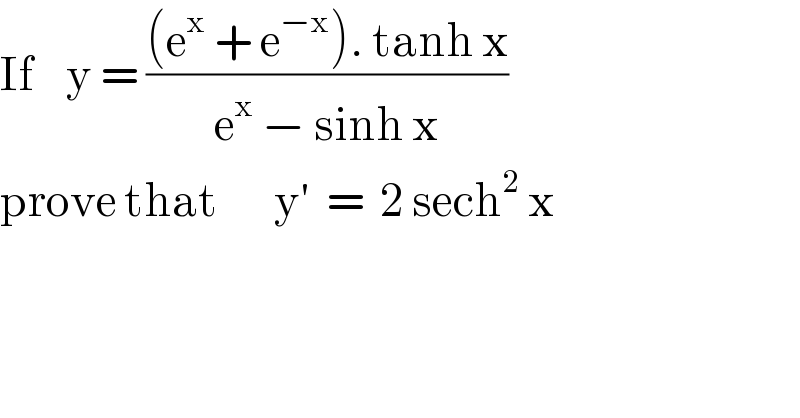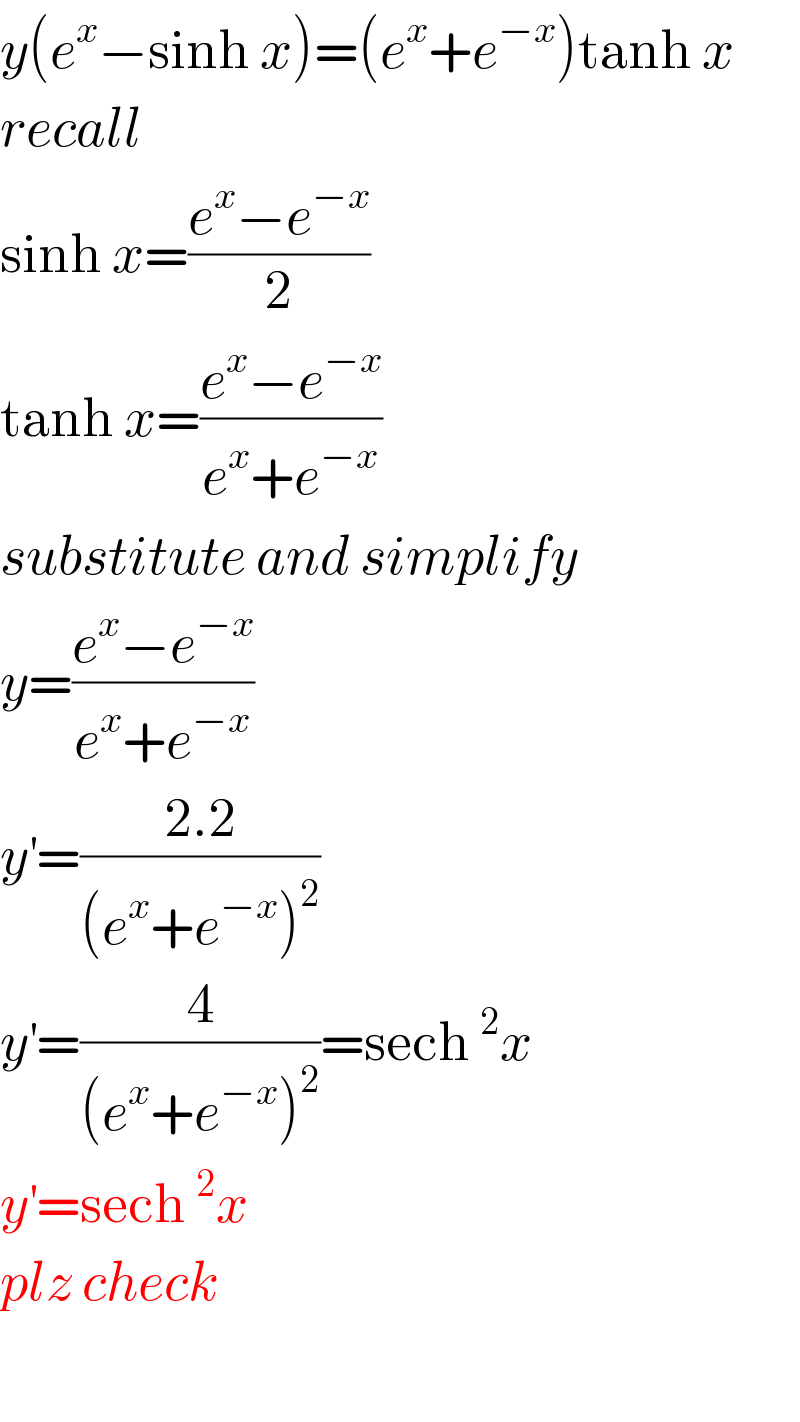
Question and Answers Forum
Question Number 51436 by Tawa1 last updated on 26/Dec/18

Answered by peter frank last updated on 26/Dec/18

Commented by Tawa1 last updated on 27/Dec/18

| ||
Question and Answers Forum | ||
Question Number 51436 by Tawa1 last updated on 26/Dec/18 | ||
 | ||
Answered by peter frank last updated on 26/Dec/18 | ||
 | ||
| ||
Commented by Tawa1 last updated on 27/Dec/18 | ||
 | ||